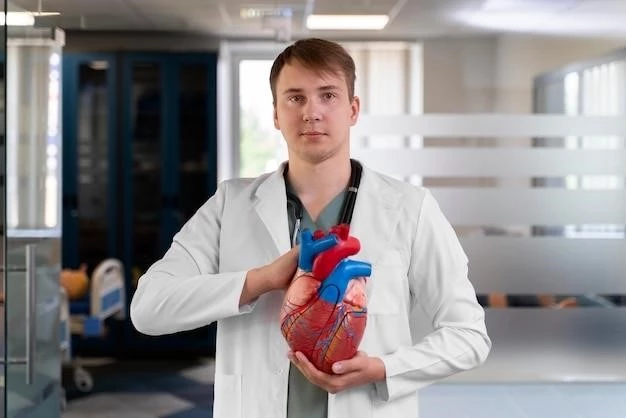Article Plan⁚ Disease ― Skeleto Cardiac Syndrome with Thrombocytopenia
The following information is written on the Internet today on a topic⁚ Today is 03/25/2024
Introduction to Skeleto Cardiac Syndrome with Thrombocytopenia
Skeleto Cardiac Syndrome with Thrombocytopenia is a complex medical condition characterized by a combination of skeletal abnormalities, cardiac issues, and low platelet count․ Two significant conditions within this syndrome are Thrombocytopenia Absent Radius (TAR) Syndrome and TAFRO Syndrome, both of which play a crucial role in the manifestation of this syndrome․ Understanding the background, symptoms, and genetic components of this disorder is essential to effectively diagnose and manage affected individuals․
Understanding Thrombocytopenia Absent Radius (TAR) Syndrome
Thrombocytopenia Absent Radius (TAR) Syndrome is a rare genetic disorder characterized by bilateral absence of radii, low platelet levels, and thumb presence․ It presents challenges ranging from skeletal deformities to hematologic and cardiac anomalies․ Recognizing the key features and manifestations of TAR Syndrome is crucial for accurate diagnosis and effective management of affected individuals․ Consult a healthcare professional for comprehensive evaluation and personalized care․
Background of TAFRO Syndrome and its Relation to Skeleto Cardiac Syndrome
TAFRO Syndrome, first reported in 2010, is a systemic inflammatory disease categorized under idiopathic multicentric Castleman’s disease․ This condition presents with aggressive clinical features, impacting various organs due to systemic inflammation․ Understanding the background of TAFRO Syndrome is crucial as it relates to Skeleto Cardiac Syndrome with Thrombocytopenia, emphasizing the need for comprehensive evaluations and tailored treatment plans․
Common Symptoms and Abnormalities Associated with Skeleto Cardiac Syndrome
Common symptoms of Skeleto Cardiac Syndrome with Thrombocytopenia include skeletal abnormalities like absent radii and heart defects, such as Tetralogy of Fallot․ Patients may also experience thrombocytopenia, gastrointestinal issues, renal abnormalities, and skeletal malformations․ Understanding these common symptoms and abnormalities is vital for early detection and appropriate management․ Seek medical advice if you observe any of these signs․
Diagnosis and Genetic Components of Skeleto Cardiac Syndrome with Thrombocytopenia
In the diagnosis of Skeleto Cardiac Syndrome with Thrombocytopenia, healthcare providers utilize a combination of clinical evaluations, imaging studies, genetic testing, and bone marrow examinations to identify skeletal abnormalities, cardiac issues, and low platelet count․ The genetic components underlying this syndrome may involve mutations affecting various genes related to bone development, heart function, and platelet production․ Seeking a specialist for a comprehensive genetic analysis and diagnostic workup is crucial for accurate diagnosis and personalized management strategies․
Management and Treatment Options for Patients with Skeleto Cardiac Syndrome

Effective management of Skeleto Cardiac Syndrome with Thrombocytopenia involves a multidisciplinary approach aimed at addressing skeletal abnormalities, cardiac issues, and low platelet count․ Treatment options may include orthopedic interventions for skeletal defects, cardiac surgeries to manage heart anomalies, and platelet transfusions or medications to address thrombocytopenia․ Regular monitoring by a team of specialists, including orthopedists, cardiologists, and hematologists, is essential to tailor a treatment plan that meets the individual needs of each patient․ It is crucial to follow the recommended treatment regimen and attend follow-up appointments to optimize outcomes and improve quality of life․
Association of Skeleto Cardiac Syndrome with Other Cardiac Conditions
The association of Skeleto Cardiac Syndrome with Thrombocytopenia with other cardiac conditions underscores the complexity of this disorder․ Patients affected by this syndrome may manifest various cardiac anomalies such as Tetralogy of Fallot, suggesting a significant impact on the cardiovascular system․ Understanding and managing the correlation between Skeleto Cardiac Syndrome and associated cardiac conditions is crucial for comprehensive care and optimal outcomes․ Consult with healthcare providers for specialized cardiac evaluations and tailored treatment strategies․
Research Studies and Case Series on Skeleto Cardiac Syndrome
Research studies and case series on Skeleto Cardiac Syndrome with Thrombocytopenia have focused on understanding the underlying genetic components, diagnostic challenges, and diverse clinical presentations of this complex disorder․ Recent investigations have explored the association of skeletal anomalies, cardiac malformations, and thrombocytopenia in affected individuals․ Case series have provided valuable insights into the management of patients with this syndrome, highlighting the importance of multidisciplinary care and tailored treatment approaches․ Stay informed about the latest research findings and advancements in the understanding of this syndrome by consulting reputable sources and healthcare professionals․
Impact of Thrombocytopenia on Cardiac Health and Surgical Outcomes

Thrombocytopenia, a condition characterized by low platelet count, can have significant implications for cardiac health and surgical outcomes․ Patients with Skeleto Cardiac Syndrome with Thrombocytopenia may face challenges during cardiac surgeries due to the risk of abnormal bleeding and reduced platelet function․ It is crucial for healthcare providers to carefully monitor platelet levels and consider appropriate management strategies to optimize cardiac health and surgical outcomes for individuals affected by this syndrome․ Consult with a cardiologist and hematologist for specialized guidance on managing thrombocytopenia-related issues in the context of cardiac care․
Future Directions in Research and Clinical Approaches for Skeleto Cardiac Syndrome
Future research in Skeleto Cardiac Syndrome with Thrombocytopenia is aimed at advancing our understanding of the underlying genetic mechanisms, improving diagnostic techniques, and exploring innovative treatment modalities․ Clinical approaches may involve personalized medicine strategies tailored to individual genetic profiles to optimize patient outcomes․ Stay updated on emerging research findings and advancements in clinical management through reputable medical journals and consultations with specialized healthcare providers to ensure the best care for individuals affected by this complex syndrome․
